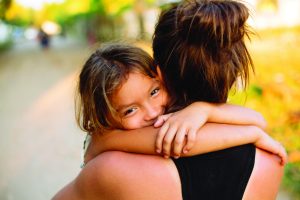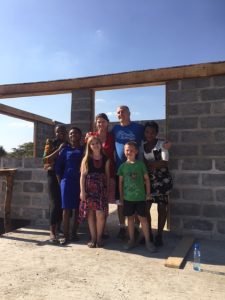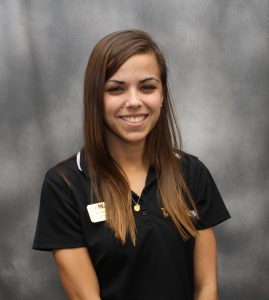Missouri Western alumni are not only making an impact locally and nationally, but also in foreign countries. Ally Browning ’08 and Gary ’97 and Rachel Chaney have found their calling in serving others – Browning in Honduras and the Chaneys in Africa.
Eyes wide open: Ally Browning ’08
As a sophomore at Missouri Western in 2006, a spring break trip to help clean up the aftermath of Hurricane Katrina in New Orleans was the first time Ally Browning ’08 had ever participated in a mission trip. That eye-opening experience led her to begin volunteering at her church, and taking mission trips over both her junior- and senior-year spring breaks.
Her ongoing commitment of serving those who need it most led her to a major step along that path – she gave up a job at Boehringer Ingelheim Vetmedica Inc. in St. Joseph and began working for the nonprofit Humanity and Hope United Foundation.
Browning, whose degree is in speech communication, says she was drawn to nonprofits when she was a senior at Missouri Western. She took a public relations course that pairs student groups with nonprofit community organizations, and she worked with the local Wesley Center to develop an after-school program for at-risk girls. When Browning graduated, she was hired to run the program.
“That class made me realize that nonprofits fit my personality,” she says. “It made me realize I wanted to help others.”
The fall after she graduated from Missouri Western, Browning, a native of St. Joseph, took her first overseas mission trip – to El Salvador – with a group called Living Water International. Her church had raised $5,000 to dig a well in a village there.
“I saw 70-year-old men crying because they never thought they would have that much access to water,” she said. “After that, I wanted to make sure that I kept going on mission trips.”
 She returned to El Salvador with Living Water International two more times, and also traveled to Haiti with the Global Orphan Project. In 2015, she traveled to Honduras with Humanity and Hope, and when she returned, she conducted a fundraiser for the nonprofit organization.
She returned to El Salvador with Living Water International two more times, and also traveled to Haiti with the Global Orphan Project. In 2015, she traveled to Honduras with Humanity and Hope, and when she returned, she conducted a fundraiser for the nonprofit organization.
Browning also began helping the group with social media, and within a few months, they offered her a position. She began working full-time for them in May 2016, and today is the foundation’s director of engagement.
“I thought to myself, ‘this is where I need to be,’ so I left the corporate world,” she said. “It was hard, because I had awesome benefits, a great team and great pay. But it was also easy because I knew I was going to a job that I was passionate about.”
Humanity and Hope is an international nonprofit that works with local residents in Honduran communities to implement sustainable projects. The organization operates out of Indiana, but Browning works from her home in St. Joseph. Since she started, she has traveled to Honduras four times.
“It’s so hard to come back home because I am constantly thinking about them,” she said. “I appreciate that I live in a community that offers so many opportunities.”
Browning noted that their organization does not try to “Americanize” the people they work with in Honduras. Instead, they help the people come up with their own solutions. For example, the organization helped build chicken coops so women can raise chickens to feed their families and to sell the extra to grocery stores. Humanity and Hope has also helped start plantain and pineapple production. Some of the money that families earn helps pay for an education for their children.
“That really opened my eyes,” Browning said. “I can’t imagine being 13 years old and having no hope of going to school. They are so grateful for the opportunity to go to school and to learn.”
She is also excited that she is learning a lot about nonprofit organizations, because Browning can’t imagine returning to a career in a for-profit company.
“I never want to live my life with my eyes closed. I want to do what I can to help people who need it.”
An eye-opening life changer: Gary ’97 and Rachel Chaney
In August 2015, Gary ’97 and Rachel Chaney quit their nursing jobs in the Kansas City area, rented out their home, sold their cars and most of their belongings, and moved with their two children to Zambia to oversee the building of a hospital there.
 The journey to that major life change began 10 years ago in Haiti, when Gary participated in a medical mission trip.
The journey to that major life change began 10 years ago in Haiti, when Gary participated in a medical mission trip.
“While I was there, I felt like this is what I should be doing,” he said. “I felt the call. It changed me.”
Rachel returned with him the next year, and the couple knew they wanted to go on more mission trips. They both continued to work full time, and Gary earned a nurse practitioner degree from Research College of Nursing in Kansas City, Missouri.
In 2010, Gary returned to Haiti after a 7.0 magnitude earthquake heavily damaged the country. But also in 2010, the couple traveled to Zambia for a medical mission.
“We saw a real need and said, ‘let’s do something more,’” Rachel said of the Zambia trip.
Gary said the third-world country has high rates of HIV and AIDS, unsanitary conditions, and no preventative care. “It’s like going into the past 50 or 100 years,” he said of its medical facilities. The hospitals are also unaffordable for most of the residents.
“They bury children daily,” Rachel said, noting that one in seven children die before the age of five.
In 2013, they returned to Zambia for a medical mission trip and treated about 200 patients each day.
Those trips led them to start planning to build a medical clinic there, and they began raising money for it. The Chaneys established a nongovernment organization (NGO) and a board of directors in Zambia so they would be accountable. Their funds go through a nonprofit organization, All God’s Children (allgodschildrenkc.com).
Samaritan’s Purse, a humanitarian aid organization, had helped Gary travel to Haiti after the 2010 earthquake, so he decided to reach out to that organization for assistance.
“We requested a list of supplies that filled about five pages double spaced, and Samaritan’s Purse sent us a list of what they would ship to Zambia for us. It was 12 pages single spaced,” he said.
However, a look at the supplies, worth about $28,000, revealed that it was supplies for more than a clinic. So the Chaneys changed their plans and began to build a hospital: the Murundu Mission Hospital of Hope.
The family returned to the United States in December 2016 for a couple of months to spread the word about their work and raise money to continue the project. They hope to have the first phase operational by January 2018.
The hospital will have 20 to 25 beds to start, a registration area, an emergency room, labor, delivery and postpartum rooms; an outpatient clinic, intensive care unit rooms, a lab, x-ray facilities, and a pharmacy. They also plan to add a surgery center in the future. All care will be free or for a minimal cost.
“It’s bringing a lot of hope to the people,” Rachel said. “They are excited.”
And when it’s completed, the Chaneys plan to turn hospital operations over to the local residents and return to the United States. Their goal is to have the hospital have half of its operational funds paid for by sustainable projects and the balance by donations. It is being built on 12 acres, so the Chaneys plan to help the locals grow farm crops on the extra land to sustain operations.
“The hospital and land will be like a refuge,” Gary said, “where they can find hope.”
In the future, they would love to build a community center, staff housing, a clinic and a home for girls. The family also holds Bible study groups and tries to help wherever they can.
“I know why we ended up here,” Gary says. “They need a lot of help.”
The couple and their two children live in a small city and drive to many of the area villages. The family does have electricity, usually off for two to eight hours every day, and running water, only cold. Rachel homeschools the children.
“Until a person gets out of their comfort zone and goes to another country, you really can’t open your eyes to see how they live, and how fortunate we are,” Gary said. “It’s guaranteed to change your life. When you come back, you will say, ‘What can I do?’”

